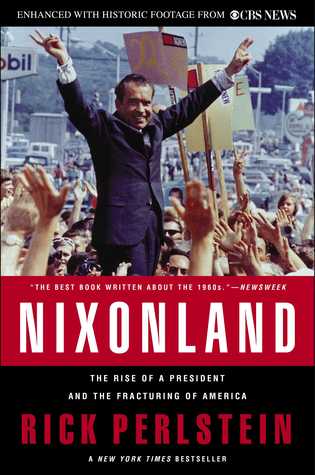More on this book
Community
Kindle Notes & Highlights
Read between
September 26, 2017 - January 6, 2022
You didn’t have to attack to attack. Better, much better, to give something to the mark: make him feel that he has one up on you. Let him pounce on your “mistake.” That makes him look unduly aggressive. Then you sprang the trap, garnering the pity by making the enemy look like a self-righteous and hyperintellectual enemy of common sense. You attacked jujitsu-style, positioning yourself as the attacked, inspiring a strange sort of protective love among voters whose wounded resentments grow alongside your performance of being wounded.
No one who knew of this bright young Richard Nixon’s capabilities and ambitions (he had formed a group to unify the freshmen Republicans, the Chowder and Marching Club) expected that upon entering Congress the previous year he would have welcomed a place on the House Un-American Activities Committee. Actually, he lobbied for it. He had ascertained a change in the cultural winds. Once the faith of boobs, Red-hunting was now the state religion. In the Hiss case, Nixon spotted the chance to engineer his investiture as its pope.
Liberal intellectuals were betraying themselves in a moment of crisis for liberal ideology. They saw themselves as tribunes of the people, Republicans as the people’s traducers. Liberals had written the New Deal social and labor legislation that let ordinary Americans win back a measure of economic security. Then liberals helped lead a war against fascism, a war conservatives opposed, and then worked to create, in the postwar reconversion, the consumer economy that built the middle class, a prosperity for ordinary laborers unprecedented in the history of the world. Liberalism had done that.
...more
After Checkers, to the cosmopolitan liberals, hating Richard Nixon, congratulating yourself for seeing through Richard Nixon and the elaborate political poker bluffs with which he hooked the sentimental rubes, was becoming part and parcel of a political identity. And to a new suburban mass middle class that was tempting itself into Republicanism, admiring Richard Nixon was becoming part and parcel of a political identity based on seeing through the pretensions of the cosmopolitan liberals who claimed to know so much better than you (and Richard Nixon) what was best for your country. This side
...more
The DNC was right: an amazingly large segment of the population disliked and mistrusted Richard Nixon instinctively. What they did not acknowledge was that an amazingly large segment of the population also trusted him as their savior. “Nixonland” is what happens when these two groups try to occupy a country together. By the end of the 1960s, Nixonland came to encompass the entire political culture of the United States. It would define it, in fact, for the next fifty years.


